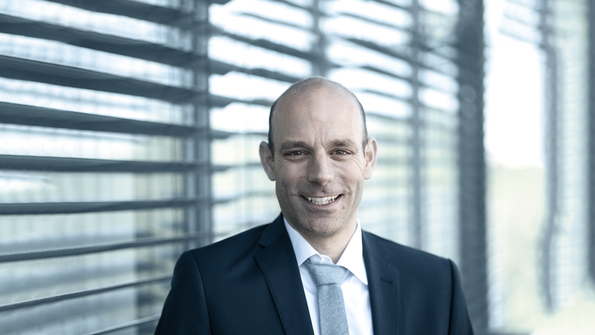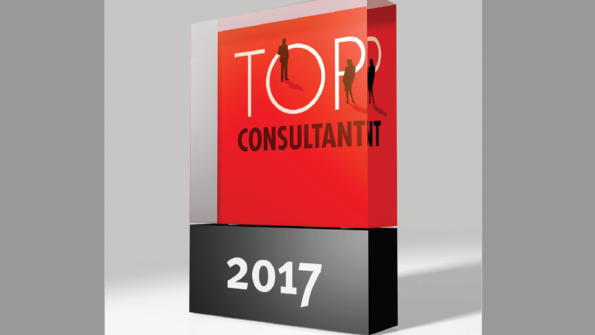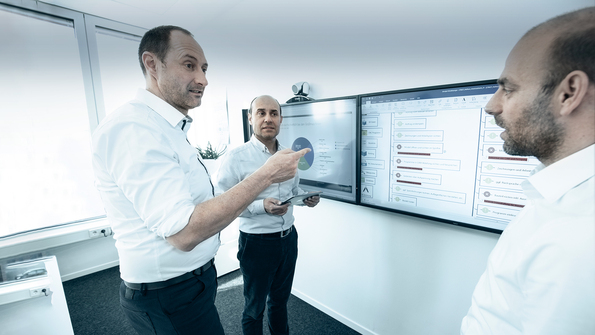Alliances for the future
Interview with Jens Lüdtke, Tebis AG
Tebis AG consultants address the backbone of the German economy: manufacturing in medium-sized companies. This includes the areas of die, model and mold manufacturing, as well as mechanical engineering. These must be prepared for the future—with a holistic consulting approach for management and processes, and specific strategies for digitization.
The company conducts research with experts from industry and at universities, and is happy to pass along its know-how.
"We take manufacturing companies that operate manually and prepare them for the future."

"In the German-speaking world, we are one of the most important consultants for model, die and mold manufacturers.”
"Customers don’t actually want software or consulting services. These are just the means to an end," says Jens Lüdtke, head of the Consulting department. "Customers want to increase their companies’ productivity and to prepare them for a secure future." Lüdtke and his team provide consulting not only on the use of Tebis, which the international company develops for design (CAD), controlling NC machines (CAM), and planning and controlling manufacturing projects (MES). They also offer customers lasting added value for strategic alignment, cost-effectiveness and efficiency, as well as for dealing with digitization. An important success factor is the early inclusion of customer employees.
Comprehensive consulting
The consultants specialize in providing a high level of value creation for small and medium-sized companies in the manufacturing industry: for example, Josef Hofmann Modell- und Leuchtentechnik GmbH in Ingolstadt, Germany. For years, consulting for the automotive supplier has been provided through close collaboration with the managing director. "We apply our entire spectrum in this project – from strategic management consulting to introducing efficient and automated processes," explains Lüdtke.
Benefits of Industry 4.0
Industry 4.0 plays to the strengths of the consultants, who’ve been developing automation solutions for single-part manufacturing for 10 years. The entire manufacturing industry is now moving in this direction—including small and medium-sized companies. The experienced consultants also share their knowledge in this area by lecturing at the universities in Schmalkalden and Aalen. In addition, Tebis has founded a work group with the German Association of Tool and Mold Manufacturers (VDWF) and the Model and Mold Manufacturing Association to address cross-industry concerns about digitalization and to promote competence in
implementation. "Many medium-sized companies use methods from Industry 4.0, but are often completely unaware of the fact," says Lüdtke. "We support companies in conceiving and implementing their own company-specific philosophy."

Your consulting services specialize in small and medium-sized manufacturing companies. Where’s the challenge for you?
Digitalization requires great effort, even from companies that have been working with computer-aided manufacturing for many years. Their corporate management often has too little time to make structural changes. We help them identify which technologies they can reasonably integrate into their processes to further develop in the context of Industry 4.0. The goal is to keep these companies competitive over the long term.
How do you handle this?
First, a company needs a plan for the direction in which it wants to develop. We work with the company to select the key manufacturing processes, examine technologies and products, and answer the question: What will actually help the company? It is important to proceed in steps, start small projects and celebrate successes. In this way, we build trust and accompany companies over many years with changes they can handle. Anything else would simply be too expensive for small and medium-sized companies.
You have been getting the Hofmann model manufacturing company in Ingolstadt ready for the future since 2012. How has the consulting proceeded?
First, we developed a concept to increase efficiency in the company. Machine runtime and the degree of standardization were successfully improved. In the next step, we took on project management, established transparency and professionalized communication. We are currently working on the company mission statement and the appropriate strategy. This also includes technology for further digitization.

How do you see Hofmann’s chances for a successful future?
Absolutely positive. Hofmann is not a company that simply goes along with industry developments. The company wants to take action, have a clear plan and actively shape the future. In our work we were able to build trust with the company, because we provide consulting based on sound knowledge of the industry – on the same level as and in close discussion with the employees involved directly in the processes.
Why are employees so important in developing and implementing the concepts?
Companies can only be successful if everyone is on board and identifies completely with the processes. Employees know best how the processes run. Once they have understood where the company is heading, we can get them involved at an early stage and work together to develop concepts for implementation. This creates acceptance of changes, and the company is on the right path.


